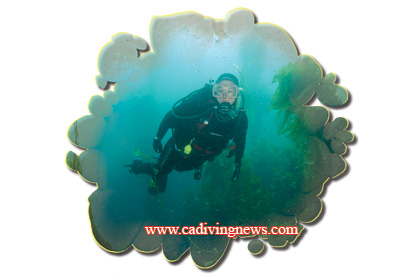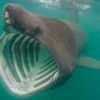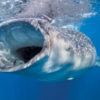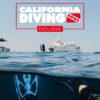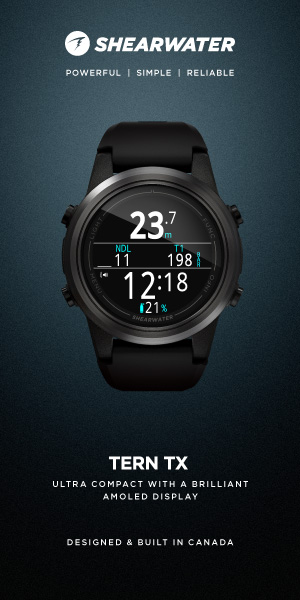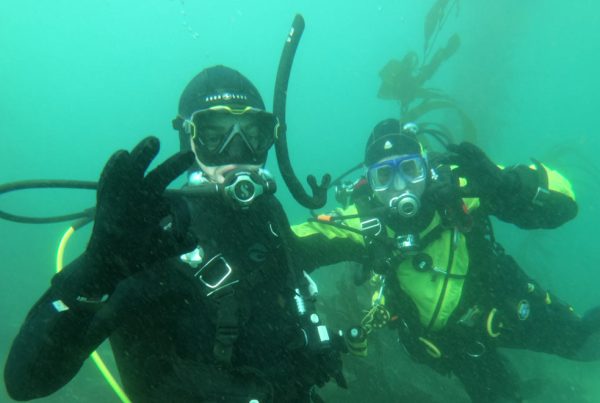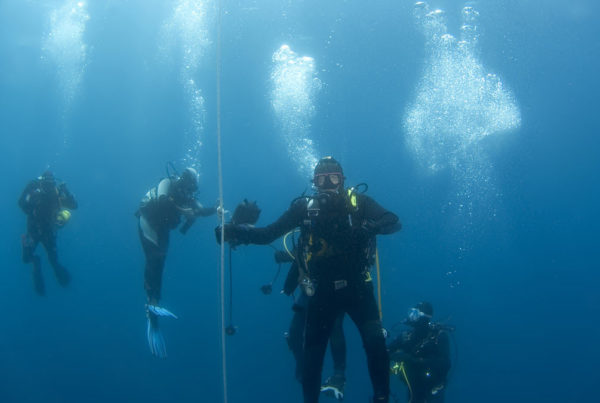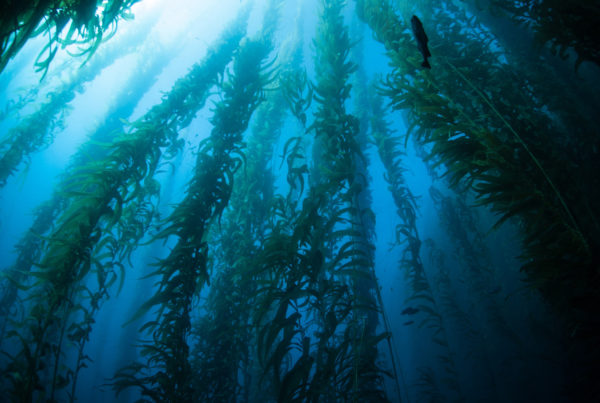Who would not want more dive time? In general, that simply translates to better air consumption. The slower you consume your breathing gas, the longer your dive. Let’s look at some ways to slow down your breathing gas consumption and thus prolong your dive times.
STREAMLINE YOUR GEAR: All loose and bulky gear will create water resistance as you move through the water, slowing you down and making your movements more difficult, thus causing you to consume more air. Furthermore, loose ends, straps, lights, etc. can snag on kelp and the bottom causing more effort. Make sure all straps are snug against your body. Bring hoses and consoles as close in as possible. Minimize the amount of gear you carry. Can that big dive light you have clipped off your BCD be replaced with a smaller one that can be tucked away in a BCD pocket? Think about streamlining in your next equipment purchase decision. Is that BCD free of unneeded accessories, such as “D”-rings you may never use? Does the BCD fit close to your body even when partially inflated? Even little things help. Use a low volume mask. A hood is more streamlined than hair whipping in the current. It all adds up.
STAY WARM: A cold diver is a rapidly breathing diver. Your body must increase metabolism to keep up with the cold. Your heart rate goes up also. And if you start to shiver, your air consumption can go through the roof. Wear thermal protection appropriate to the water temperature. In central and southern California a 7 mil, double layered with a 5 mil around the chest and a hood is minimum for the summer. A custom wetsuit is always much more desirable, especially if you do not have an “off-the-rack” kind of body. A dry suit is, of course, the ultimate form of thermal protection allowing for diving year round and giving you maximum thermal protection for better air consumption. There is, however, the trade-off with some dry suits with a reduction in streamlining, but many new additions to the dry suit market have all but eliminated this concern.
STAY SHALLOW: It is simple physics: the shallower your dive, the more time you will have underwater. Deep dives take up a tremendous amount of breathing gas. It is also colder down there, and your wetsuit compresses dramatically offering less thermal protection. In California, most of the best diving, with a few exceptions, is in 80 feet or less anyway.
USE THE RIGHT FINS: Advertising tells you, and it is at least somewhat true, not all fins are created equal. Furthermore, one type of fin is not appropriate for all divers. For strong swimmers covering a lot of distances in a straight line are usually (but not always) better off with long-bladed fins with a lot of surface area. Shorter blade fins are better for sculling or working around reefs or in tight places like the kelp forest. So how do you know which fin is best for you? Talk with other diver with similar swimming ability to yours as well as diving needs. Your professional dive store will be of great assistance.
But it is not just the right fin. You must also use your fins correctly. They should become an extension of your legs in a whipping action that starts above your hips all the way to your toes down through the fin. Some fins require slightly different techniques, but if you have the right fin you will learn to work the fin to its maximum effectiveness.
PROPER WEIGHTING: If you are fighting your buoyancy, both negative and too positive, you will consume far too much air. Get your weighting right before your dive. Simply, put you should be neutrally buoyant with your tank at 500 p.s.i. at your 15-foot safety stop. The best way to estimate this with a full tank is to relax and, with your regulator in your mouth and BCD empty, exhale. The water level should reach to about your eye level.
BREATHE CORRECTLY: A slow, rhythmic, relaxed, and natural breathing pattern is best. If you find yourself in a rapid shallow breathing pattern, take the time to slow down and relax. It will pay off and you can proceed with your dive. And NEVER “skip breathe” to try to prolong your dive! It does not work and can be dangerous.
USE GOOD DIVING SKILLS: As a comfortable diver, a diver without undo stress, you will consume less air. To be this kind of diver you simply have to master your diving skills. An advanced diver class would be helpful. Spend time in a pool or in shallow calm water and practice your diving skills — equalizing, mask clearing, out of air procedures, neutral buoyancy, etc. All will add to your comfort lowering your stress levels and air consumption.
Sure you can take more dive trips or make more dives per day to get in more dive time. But rather, why not adopt some skill to make each dive last longer. Practice the proper skills, and you will find your dives lasting longer and becoming more enjoyable.

